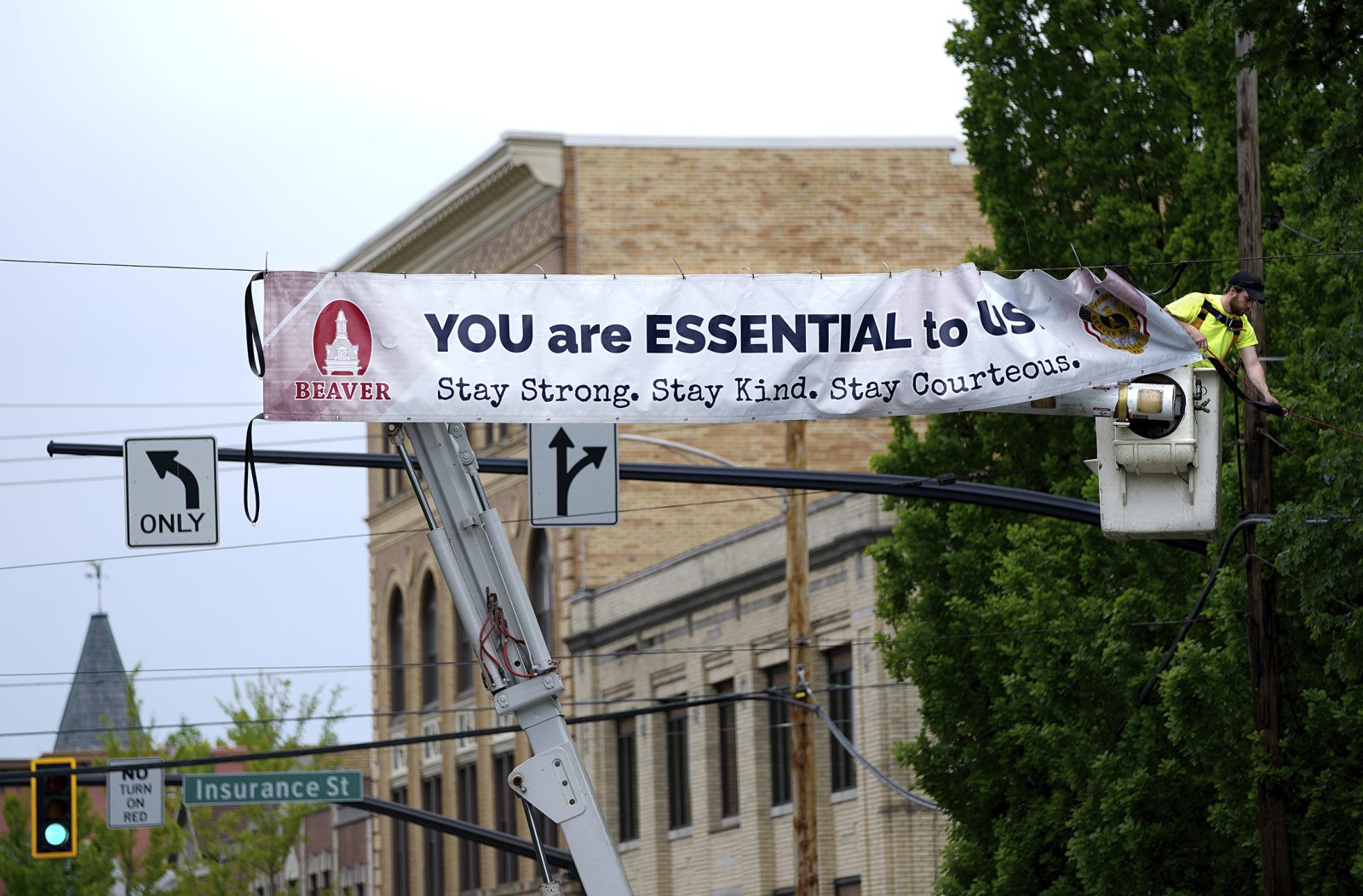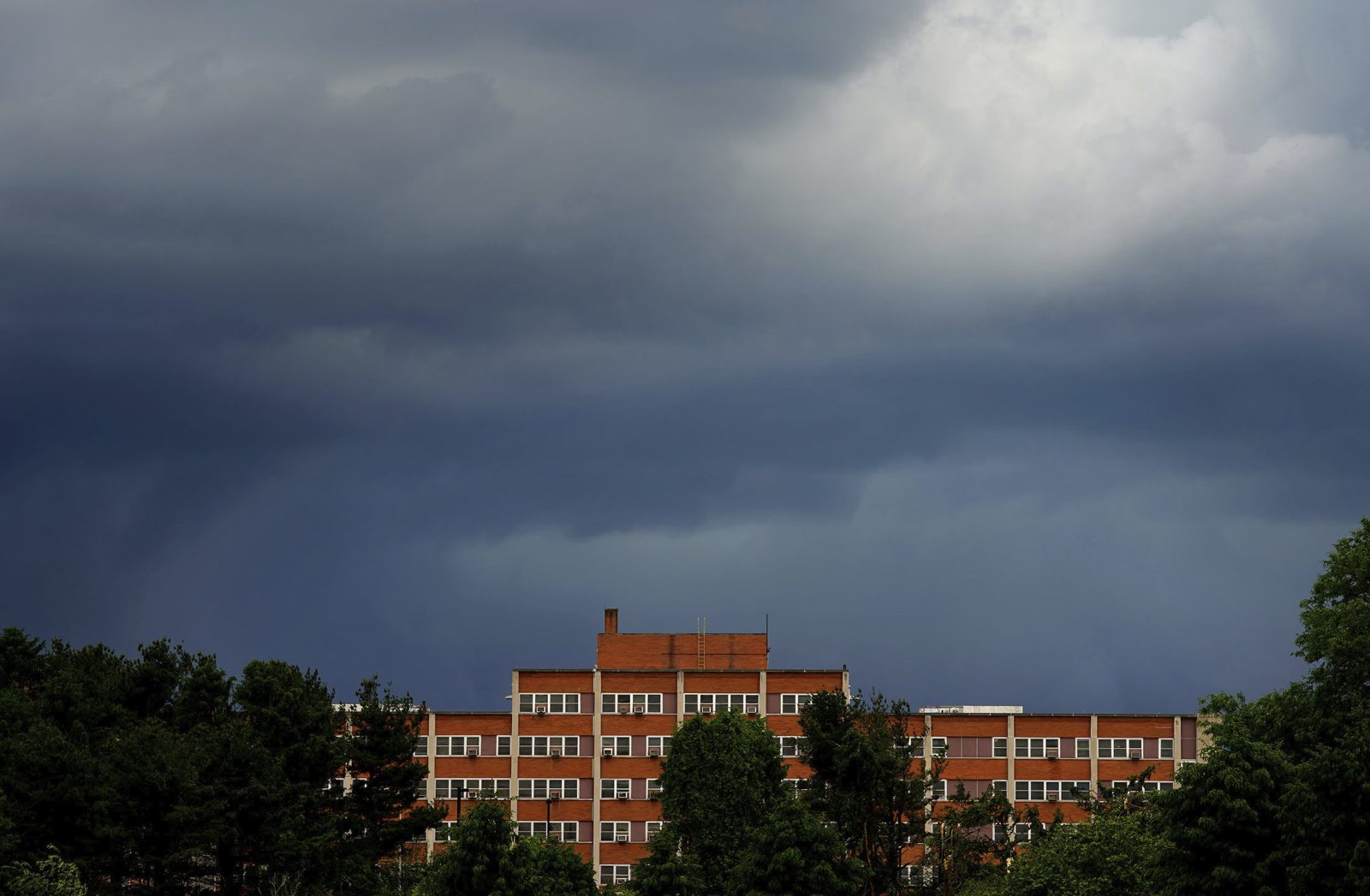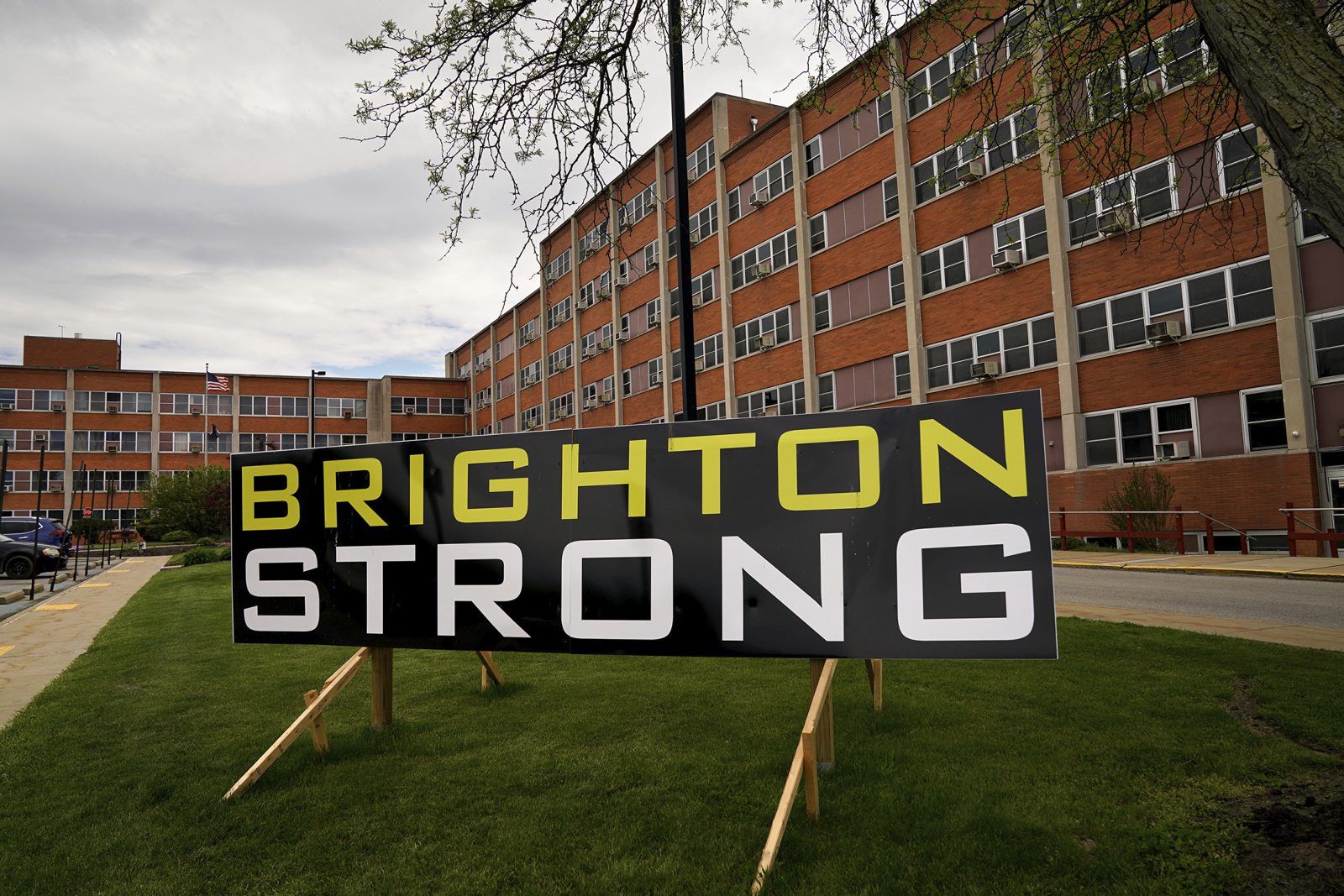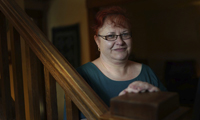

Aug. 9, 2020
By Jamie Martines and Natasha Lindstrom
Evelyn Gilbert, 53, began her five-day dose of hydroxychloroquine while battling covid-19 in a room with three other infected residents at Brighton Rehabilitation and Wellness Center.
Kenneth Miller, 66, who had not shown symptoms of the virus, was jolted awake by a Brighton staffer urging him to sign a consent form for a new medication that would help him.

Dorothy Umstead, 78, a stroke survivor with diabetes, decided she did not want to take the hydroxycholoroquine and was “just going to trust Jesus,” her daughter, Judith Minegar, said.
All three were among the 205 of 435 Brighton patients who, according to state inspection records, were administered the controversial anti-malaria drug as of April 29 without needed approval from the state health department. Several residents and their family members said they felt pressured to say yes to the treatment, despite concerns about its possible side effects.
Although all three tested positive for the virus, they have since recovered.
Consent forms given to residents indicated they were receiving hydroxychloroquine as part of medical research intended to determine whether the treatment, when taken with zinc, would prevent covid-19, inspection records show.
Although state reports show the facility erred in not getting approval to use the drug that is “not generally accepted practice in the medical community,” state health officials would not comment about the penalty for failing to do so.
U.S. Rep. Conor Lamb, D-Mt. Lebanon, last week called on the Centers for Medicare & Medicaid Services, which oversees nursing homes, and the U.S. Department of Health & Human Services to look into Brighton’s use of hydroxycholoroquine.
“At this point, the Pennsylvania Department of Health does not appear to have imposed any accountability or punishment on Brighton for the use of hydroxychloroquine without permission,” Lamb said.
Sens. Pat Toomey, R-Lehigh Valley, and Bob Casey, D-Scranton, also have called for a federal probe into reports of the distribution of hydroxychloroquine.
Health department officials said last week they “will continue to follow the legal processes set forth in federal and state statutes and regulations” in its oversight of nursing homes.
A corrective plan that is part of the state report indicates Brighton no longer is administering the drug and that the medical director and clinical leaders were required by July 7 to undergo training in patient rights in regard to experimental research. Audits will be performed to ensure the Brighton officials have complied, records show.
Hydroxychloroquine is not approved by the U.S. Food and Drug Administration as a treatment for the coronavirus but had been administered as an emergency, experimental treatment for covid-19, the disease caused by the coronavirus. The FDA revoked that emergency authorization June 15.
Brighton officials defended the use of the drug.
“Since the onset of covid-19, Brighton has followed the guidance of government health care officials and physicians,” a statement signed by Brighton Facility Management said. “Like any drug, hydroxychloroquine would have to be prescribed by a treating physician. Facility staff only assist with administering medications.”
The statement went on to say the treatment was prescribed following the FDA emergency use authorization issued in March “with the full consent of residents and/or their legal guardians.”
“After the FDA revoked the (emergency authorization), physicians immediately ended this practice and ceased prescribing it,” the statement said.

Jodi Gill, an attorney and criminal justice professor from Ambridge, asked to review the permission form when Brighton staff called about administering hydroxychloroquine to her father, an 81-year-old dementia patient who has a “do not resuscitate” form on file. She reviewed the paper by email and gave her authorization but noted she was doing so “begrudgingly.”
Gill later filed a class-action lawsuit against the state Department of Health accusing it of shirking its oversight duties at Brighton and other nursing homes. The lawsuit also accused Brighton of performing drug experiments on patients without gaining proper permission under the guise of clinical trials to prevent covid-19.
That suit has been dismissed as a pair of attorneys in the case pursue similar but revised litigation against Brighton.
Like Miller and Umstead, Gill’s father contracted covid-19 weeks after taking hydroxychloroquine and has since recovered.
Recent studies have suggested the drug is not effective in treating or preventing covid-19.
The drug’s known side effects can include heart complications such as irregular heart rhythm, low blood pressure and muscle or nerve damage.
Several residents given the treatment had a history of heart issues, their family members told the Trib.
Even when hydroxychloroquine was authorized more broadly as an emergency treatment, physician groups had cautioned against using it on covid-19 patients outside of hospital or sophisticated research settings.
Hydroxychloroquine can have dangerous and potentially fatal effects — “even under the best of circumstances,” said Dr. Michael Lynch, medical director of the Pittsburgh Poison Center and a UPMC emergency medicine physician.
Said Dr. Arvind Venkat, emergency medicine physician for Allegheny Health Network: “We do not have scientific evidence that this is an effective treatment or that it’s safe for the general population.”

The same week Brighton reported its first coronavirus case in late March, President Trump touted hydroxychloroquine as a treatment for the coronavirus. He made headlines again in late July as he promoted the drug on Twitter.
Dr. Anthony Fauci, the nation’s leading infectious disease expert and a member of the White House coronavirus task force, pushed back against the president recently, the Associated Press reported.
“I go along with the FDA,” said Fauci, director of the National Institute of Allergy and Infectious Diseases. “The overwhelming prevailing clinical trials that have looked at the efficacy of hydroxychloroquine have indicated that it is not effective in coronavirus disease.”
Although Jamie Worthy had power-of-attorney for her older sister, Brighton resident Kim L. McCoy-Warford, 64, no one asked permission before beginning a five-day regimen of hydroxychloroquine, she said.
Her sister, a dementia patient who also had a history of heart problems, seemed to recover from covid-19 only to die a few weeks later on April 18.
Jamie Martines and Natasha Lindstrom are Tribune-Review staff writers. You can contact Jamie at 724-850-2867, jmartines@triblive.com or via Twitter @Jamie_Martines. You can contact Natasha at 412-380-8514, nlindstrom@triblive.com or via Twitter @NewsNatasha.
Options for reporting issues at nursing homes include:
• Pennsylvania Department of Health: Call 800-254-5164, email c-ncomplai@pa.gov or use the online complaint form on the department’s website. Complaints can be kept anonymous.
• State Attorney General’s Office: To report neglect or possible criminal allegations, email neglect-COVID@attorneygeneral.gov or call 717-787-3391 and ask for the Medicaid Fraud Control Section.
• Long-Term Care Ombudsman Program: Call 717-783-8975 or email LTC-ombudsman@pa.gov.
For emergencies involving immediate danger, call 911 or 877-72-432584 (877-PA-HEALTH).
 |
Problems at Brighton Rehab didn’t start with coronavirus, Trib probe finds |
 |
Brighton Rehab residents, families outraged by lax oversight during outbreak |
 |
After months of uncertainty at the top, Brighton Rehab has manager in place through end of year |
 |
As outbreak spun out of control, Brighton Rehab ownership group remained mum. It still does. |